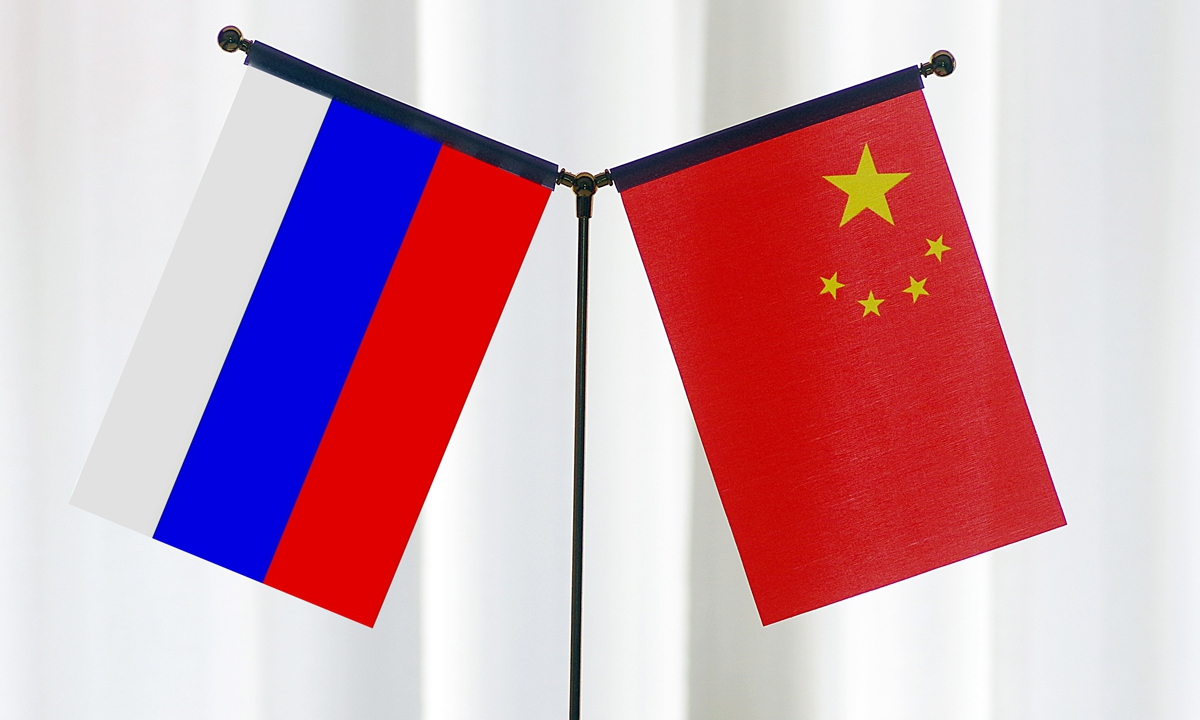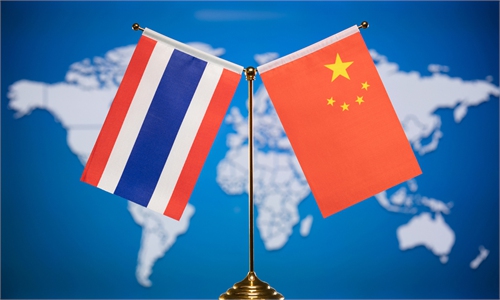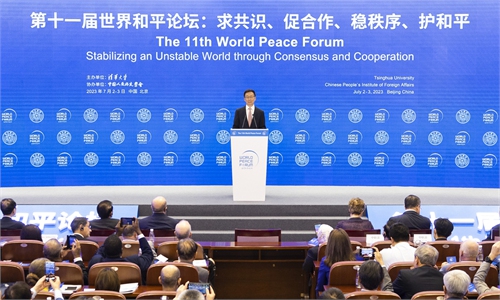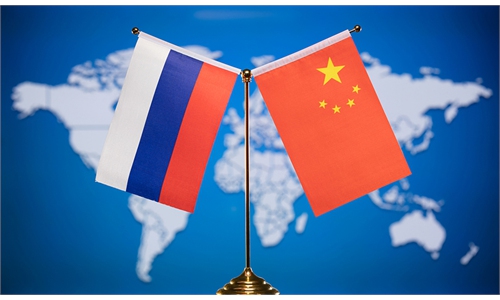
China-Russia Photo: VCG
Wang Yi, director of the Office of the Foreign Affairs Commission of the Communist Party of China (CPC) Central Committee, met with Russian Foreign Minister Sergey Lavrov on Thursday on the sidelines of the ASEAN-China Foreign Ministers' Meeting in Jakarta, Indonesia. The two sides agreed to maintain high-level exchanges and enhance cooperation amid a turbulent world.
The meeting came amid reports of reported visit of Russian President Vladimir Putin to China within this year, which experts said shows a growing mutual trust despite Western attempts to sow discord between the two sides, and that the trip is expected to yield more results in multilateral and bilateral pragmatic cooperation.
One day before their meeting, the Kremlin confirmed on Wednesday that a visit by Russian President Vladimir Putin to China was on the agenda, and the Kremlin noted that now was a good time to maintain high dynamics in the development of relations between Russia and China.
In the face of profound changes unseen in a century, China and Russia firmly support each other in safeguarding legitimate interests, adhere to the path of harmonious coexistence, cooperation and win-win development, and jointly promote world multi-polarization and democratization of international relations, Wang noted, according to the Chinese Foreign Ministry.
Wang called on the two sides to follow the important consensus reached by the two heads of state, maintain high-level exchanges, strengthen strategic communication and coordination, demonstrate the responsibility of major countries, defend their respective national interests and national dignity, and maintain international fairness and justice.
Russia and China have maintained high-level exchanges, and the successful meeting between the two heads of state this year has injected strong impetus into bilateral relations, said Lavrov. He noted that the Russian side is willing to work with the Chinese side to implement the important consensus reached by the two heads of state, further strengthen strategic coordination, and deepen cooperation in various fields.
Russia is also willing to promote the process of multipolarization in the world, oppose all powers and hegemonies, and jointly support the centrality of ASEAN, Lavrov said.
The exact date of Putin's trip will be announced when it is finalized, Kremlin spokesperson Dmitry Peskov told a news briefing, according to Reuters on Wednesday.
Former Russian Ambassador to China Andrey Denisov said on Tuesday that the Chinese side was getting ready for a visit by the Russian president in October in order to participate in the Third Belt and Road Forum.
Currently, both China and Russia are facing a complex international environment against the backdrop of a deteriorating security situation, with tensions growing in both the Eurasian and Asia-Pacific regions and posing serious challenges for both countries, Yang Jin, an associate research fellow at the Institute of Russian, Eastern European and Central Asian Studies at the Chinese Academy of Social Sciences, told the Global Times on Thursday.
Economically, there is also an urgent need for China and Russia to cooperate when the world economy has become more volatile and fragile in the post-pandemic era, Yang noted.
Yang stressed that the China-Russia comprehensive strategic partnership of coordination for a new era is an established, long-term relationship that will not be affected by issues of the day, and it is not engaged in any political or military alliances or confrontations against third parties.
"After the Ukraine crisis, the US-led West has been trying to morally coerce China into pressurizing Russia. However, this coercion has failed. This reflects the advancement in the level of mutual trust between the two sides," Li Yongquan, director of Eurasian Social Development Research at the Development Research Center of the State Council, told the Global Times on Thursday.
Peskov said that during Putin's expected trip to China, the two presidents will focus on bilateral trade and economic cooperation and on global issues.
"Based on the similarity in Moscow and Beijing's vision of the essence of international relations… we have very, very good prospects for further discussions and, most importantly, for constructive interaction," Peskov noted.
In addition to reaching new consensus within the framework of the Belt and Road Initiative, there may also be new cooperative projects signed, including the development of the Far East as proposed by Russian experts, as well as cooperation in previously challenging areas such as transportation and agriculture in Siberia, which had faced various obstacles in the past but now the obstacles are now largely removed, Yang noted.
Li explained that the similarity in the two countries' perspectives on international issues lies in their common belief in a multipolar world and opposition to hegemony, and rejection of the use of sanctions in handling international relations.
He noted that the two sides' stance in respecting the UN Charter and international law as the basic norms of international relations has received support from the majority of countries around the world.
The Ukraine issue will likely be on the agenda for Putin's expected visit, experts said, and China will continue to make efforts to promote peace and dialogue because, given the current situation, it will be difficult to resolve these issues if China's proposal for a peaceful solution is not followed.



